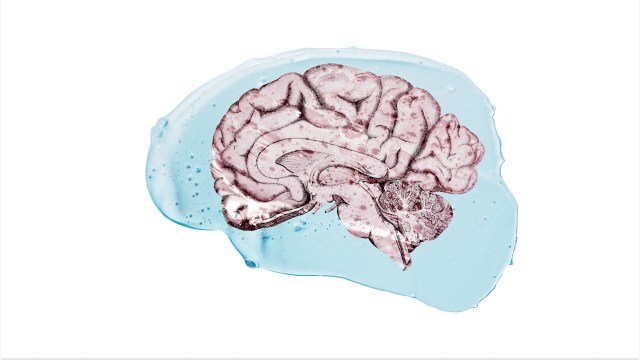Is a capitalist-socialist economy inevitable?

- For a wide variety of reasons, the current economic system no longer works for many people.
- Is the answer to move to a (more) hybrid economy, and is this transition inevitable?
- Several Big Think experts weigh in.
There are a number of economic problems facing our society. Income inequality, both within and between nations, is rising to levels seen in the 14th century. The side effects of many industries, such as pollution, exploitation, and other social harms, continue to devastate large parts of the world. And an increasing number of people are having trouble making ends meet while being surrounded by material wealth.
As the debate around these problems and potential solutions continues, it begs the question: Is a capitalist-socialist economy inevitable? A few Big Thinkers have weighed in on the topic.
Why the status quo isn’t working
The current economic system simply isn’t working for a lot of people, according to Timothy Snyder, the Levin Professor of History at Yale:
“The United States is a country which is among the least equal in the world. According to Credit Suisse, which is a Swiss bank and not some kind of crazy left-wing organization, we are second in the world in wealth inequality after the Russian Federation. In the United States since the 1980s, basically 90 percent of the American population has seen no improvement in either wealth or income. Almost all of the improvement in wealth and income has been in the top ten percent and most of that’s been in the top one percent and most of that has been in the top 0.1 percent and most of that has been in the top 0.01 percent, which means that not only are people not moving forward objectively, but the way they experience the world—and this is very powerful—is that other people are on top.”
That the economy isn’t working for everyone isn’t a new idea. Still, according to author Anand Giridharadas, the notion that markets would fix all has been pushed even when the evidence against it is at hand:
“There is a way in which American elites, and this is not just a couple of greedy hedge fund billionaires, the American intelligentsia also has been complicit in a false story. Rich people and wealthy corporations spent a generation waging a war on government, defunding government, allowing social problems to fester and allowing their own profits to soar….I was sitting in Michigan in Econ 101 and I remember getting this lecture on how all this stuff was for the good and we would be better off. And right around us, all around us in Michigan in 1999 the state was falling apart.”
Dr. Ioannis “Yanis” Varoufakis, former Minister of Finance for Greece and currently a left-wing member of that nation’s parliament, told Big Think that the failures of our current system affect everybody:
“We have billions of people working like headless chickens, driving themselves into depression and going home and crying themselves to sleep at night if they have a job, or consuming antidepressants and becoming obese and seeing shrinks if they don’t have a job. In the end, we have a joyless economy. Even those who are extremely powerful, in theory, the haves of the world, are increasingly feeling insecure. They have to live in gated communities because they fear all the have-nots out there that envy their wealth. In the end, we have developed fantastic means of escaping need and escaping want which we are not putting to good use because, in the end, we are developing new forms of depravity and deprivation and universalized depression, psychological depression, which is incongruent with our fantastic advances at the technological level.”
So, now that we’re discussing alternatives to neo-liberalism, what options are on the table?
How to mix a mixed economy
The current economic system favored by most industrialized countries is the “mixed economy.” This is best described as a capitalist system with elements of a planned economy thrown in. It’s nothing new; versions of it predate Rome. The question being debated in most countries is not whether there should be a mixture of markets and state intervention but rather what that mixture should be. Today, we are in an era where freer markets and less intervention are popular approaches, but this is a fairly new development.
A few decades ago, even capitalist countries employed planning. For example, in France, the government guided the market-centered economy through the use of indicative planning, a type of economic planning in which the government sets general targets and priorities for economic development but does not directly control the production and distribution of goods and services. This policy was in effect for decades now known as the “Thirty Glorious Years.” Similar policies existed in Japan and India.
In the Nordic countries and China, the state owns or controls a large share of many enterprises. In Norway, the oil industry is owned by the government and actively invests in other companies. While state ownership has declined in Scandinavia, the various national governments still own many businesses across many industries. In the southern United States, the federal government still owns and operates the Tennessee Valley Authority.
Even the more market-oriented countries rely on state intervention — such as regulation, welfare, and macroeconomic policy — to correct market failures. Moving to a model with more intervention would be fairly easy in terms of policy implementation. We’ve done it before, it is merely a question of if we want to again.
Most major economies today are operating on a blend of capitalism and socialism. Given the problems many industrial economies face today, a reevaluation of which blend we are using may well be in order. Dr. Varoufakis’ party calls for market socialism. John Fullerton has pushed for a re-imagination of how we approach economics and recently wrote a book on regenerative economics. Wendell Pierce, an actor and businessman, considers himself a “true capitalist” while also calling for increased social services, such as improved public education.
Whatever we pick, we’d do well to remember the words of former Chinese leader Deng Xiaoping: “It doesn’t matter if a cat is black or white, so long as it catches mice.”





